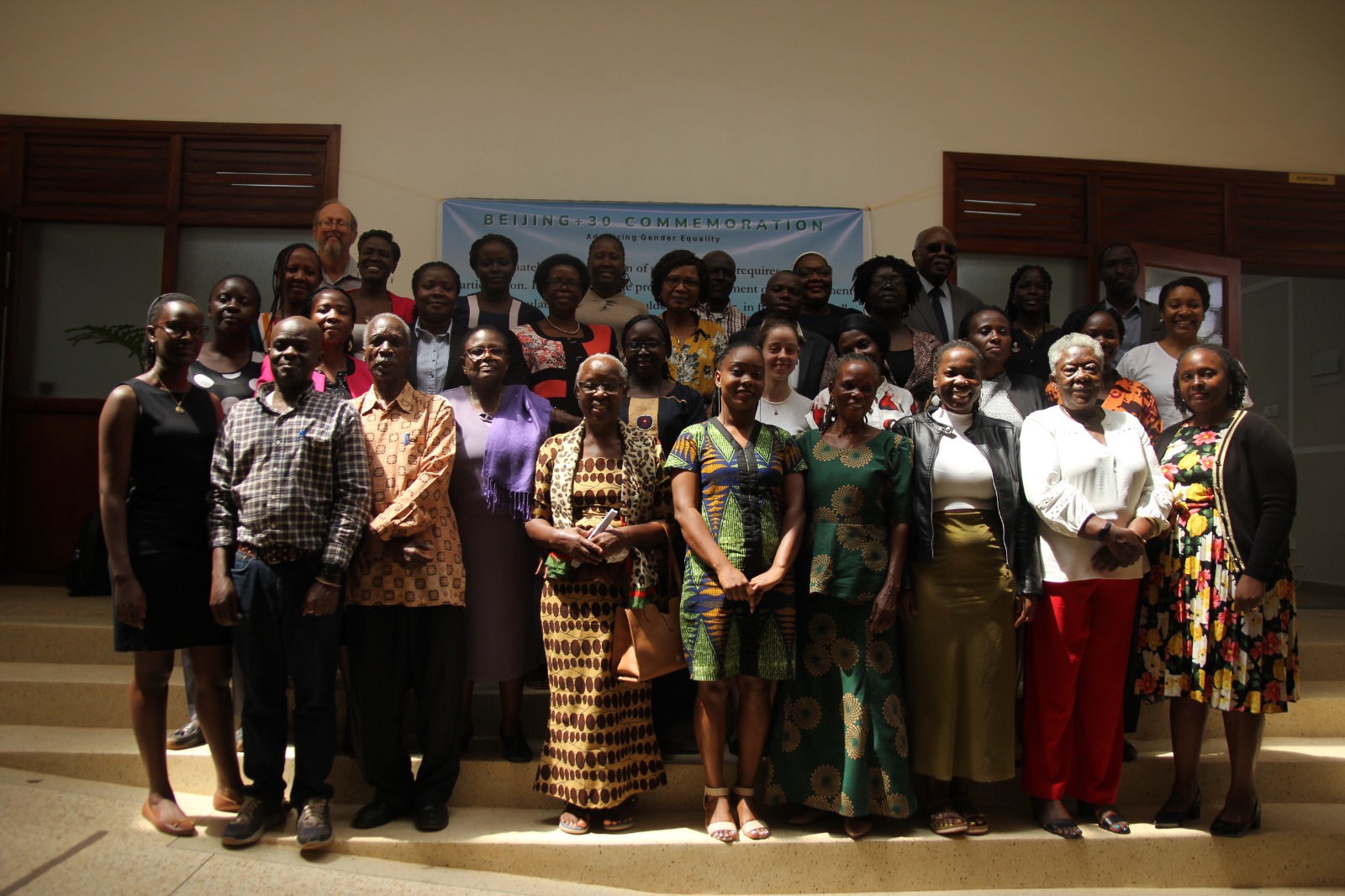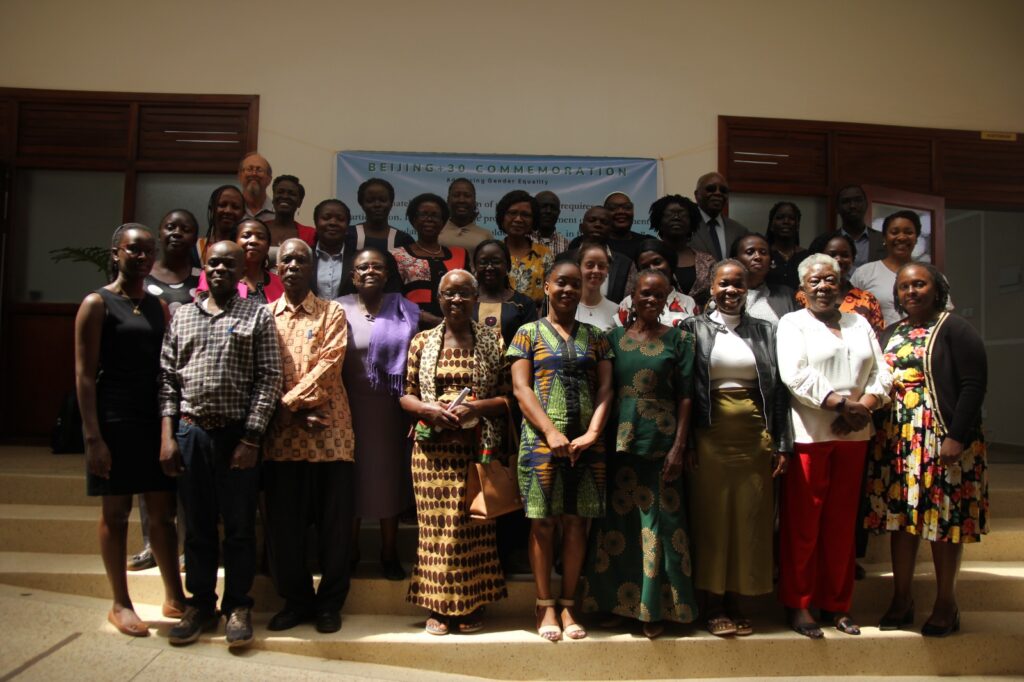
 Mama FM
Mama FM

 Mama FM
Mama FM
15 September 2025, 1:11 pm
By Byamukama Alozious
On September 11, 2025, a national stakeholder meeting was held at the Bahá’í Faith Centre in Kikaaya, Kampala to reflect on 30 years since Beijing declaration. The event brought together policymakers, activists, and community leaders to reflect on three decades since the landmark 1995 Beijing Fourth World Conference on women, which produced the Beijing Platform for Action.
Since then, Uganda has made notable progress. Women now occupy 34% of parliamentary seats and are increasingly at the forefront of advocating for a GBV-free society, health rights, land rights, education, political participation, and media representation. Maternal mortality has declined, more girls are staying in school, and legal frameworks have been strengthened. Yet, challenges such as discriminatory norms, child labour, unpaid care work, and climate change continue to hinder equality.

Elliot Orizaarwa, from the Equitable Budgets for Women and Children Initiative, noted that while women have gained ground in politics, business, and leadership, that does not mean the struggle is over. “We still need deliberate engagement with men at all levels, and we cannot ignore new challenges like the boy child in child labour or women being excluded from emerging technologies such as artificial intelligence.”
Destiny Kharono Mugumisa , The Bahá’í Office of External Affairs Administrator in charge , reminded participants that, “poverty, unequal access to education and healthcare, violence against women, and the effects of conflict are still real challenges. These must be confronted with renewed urgency if we are to advance equality.”
“The Bahá’í Faith, which hosted the dialogue, highlighted its outstanding role in promoting equality as a spiritual principle. Participants agreed that faith institutions have a unique opportunity to support women’s causes, especially in transforming mindsets and community practices.
Elizabeth Kharono, a gender rights advocate, stressed that while women are entering spaces traditionally dominated by men, their progress is slowed by systemic inequalities and limited resources. She pointed out that advocacy must be matched with stronger support from government and community leaders. “We cannot afford to let the challenges overshadow the gains. Every step forward is an investment in justice and dignity for all,” she said.